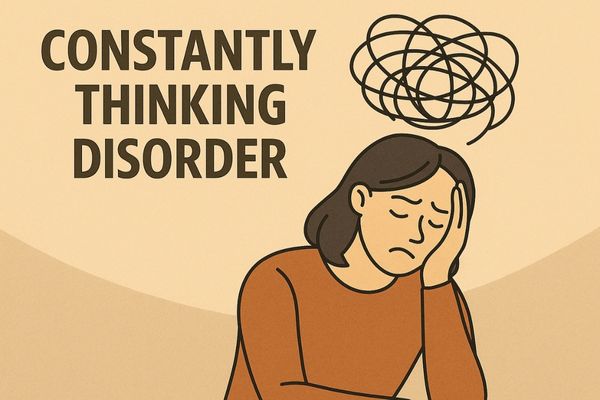Why We Struggle with Self-Doubt
Self-doubt is not just an emotion—it’s a habit. It follows a predictable cycle, reinforced by fear, overthinking, and comparison. The good news? If it’s a habit, it can be broken.
Many people try to fight self-doubt in the moment, relying on willpower, but willpower alone is not enough. The key is to remove the battlefield of self-doubt before the battle even begins.
“Don’t fight a battle later if you can remove the battlefield today.”
Instead of resisting doubt when it arises, eliminate the conditions that allow it to grow. This article will walk you through what causes self-doubt, why it persists, and how to break the habit loop using faith, mindset shifts, and practical strategies.
Understanding the Habit Cycle of Self-Doubt
Self-doubt operates like any other habit—it follows a cycle. Identifying where you are in the cycle is the first step to breaking free.
| Stage | How Self-Doubt Develops |
|---|---|
| Cue (Trigger): | A failure, a negative comment, comparison to others. |
| Craving (Desire): | Seeking approval, avoiding risk, or needing reassurance. |
| Response (Action): | Overthinking, withdrawing, procrastination, avoiding challenges. |
| Reward (Outcome): | Temporary relief, but long-term insecurity & missed opportunities. |
James 1:6 – “But when you ask, you must believe and not doubt, because the one who doubts is like a wave of the sea, blown and tossed by the wind.”
Why This Matters: Self-doubt is not just a passing thought—it becomes a cycle that reinforces itself. Breaking free requires changing the triggers and responses.
My Personal Battle with Self-Doubt, Racing Thoughts, and ADHD
For as long as I can remember, my mind has been in overdrive—constantly jumping from one thought to the next, overanalyzing, second-guessing, and running endless mental simulations of “what ifs.” It’s like living with a brain that refuses to slow down, always searching for certainty but never quite finding it.
Growing up, self-doubt shaped so many of my choices—or rather, my lack of them. I hesitated to speak up in conversations, fearing I’d say something foolish. I put off starting projects, paralyzed by the thought of failing before I even began.
The constant questioning—Am I doing this right? Am I even capable?—left me stuck, trapped in a cycle of overthinking instead of living.
ADHD made it worse. My thoughts raced so fast that even when I wanted to take action, my mind would shift before I could follow through. Instead of filtering out distractions, I absorbed them all, making it hard to focus, trust my decisions, or even finish what I started.
The frustration of knowing what I should do but feeling unable to do it only deepened my self-doubt.
And then there was cynicism. At some point, it became easier to question everything rather than risk being wrong.
I doubted people’s advice, assumed hidden motives, and even struggled with my faith—wondering if I was overthinking God’s plan just as much as I did everything else. Instead of seeing doors opening, I saw roadblocks. Instead of trusting, I resisted.
Looking back, I’ve realized that the real battle isn’t just about pushing through with more willpower. It’s about learning when to challenge my thoughts and when to let them go.
It’s about creating space for clarity rather than letting doubt fill every corner of my mind. And most importantly, it’s about shifting my trust—from my own endless analysis to something greater than myself.
Proverbs 3:5-6 – “Trust in the Lord with all your heart and lean not on your own understanding.”
Solution: Create space for clarity—journaling, meditation, and intentional quiet time with God helps slow down the noise and focus on what truly matters.
What Causes Self-Doubt? Breaking Down the Triggers
Past Failures & Fear of Repeating Them
Philippians 3:13-14 – “Forgetting what is behind and straining toward what is ahead, I press on toward the goal.”
Solution: Shift your mindset—failures are lessons, not identity markers.
Comparison & Social Media Pressure
Galatians 6:4 – “Each one should test their own actions. Then they can take pride in themselves alone, without comparing themselves to someone else.”
Solution: Unfollow negativity, practice gratitude, and focus on your own journey.
ADHD, Racing Thoughts, and Cynicism as Fuel for Self-Doubt
One of the biggest contributors to self-doubt is having too many thoughts at once. ADHD makes it hard to regulate focus, which means doubt can quickly spiral into overthinking. The more thoughts racing in my mind, the harder it became to trust my own judgment.
Cynicism worsened my self-doubt. I started believing that things won’t work out anyway, that I shouldn’t trust people’s encouragement, or that God’s promises must not be for me.
Ecclesiastes 1:2-3 – “Meaningless! Meaningless! Says the Teacher. Utterly meaningless! Everything is meaningless.”
Solution: Recognize cynicism as a defense mechanism—it protects from disappointment but also prevents growth. Replace it with faith-driven optimism.
The Smart Strategy: Removing Self-Doubt Before It Strikes
Instead of battling doubt in the moment, cut off access to the triggers that feed it.
A. Eliminate Triggers of Comparison & Overthinking
- Mute or unfollow social media accounts that trigger insecurity.
- Set daily affirmations from scripture instead of looking for approval from people.
- Keep a “Truth Journal” with Bible promises about identity in Christ.
2 Corinthians 10:5 – “We take captive every thought to make it obedient to Christ.”
B. Avoid Procrastination & the Fear of Failure
- Break tasks into small steps → Don’t wait for “perfect conditions” to start.
- Set deadlines & accountability partners → Invite someone to check on your progress.
- Replace fear-driven habits with faith-driven actions.
Joshua 1:9 – “Be strong and courageous. Do not be afraid; do not be discouraged, for the Lord your God will be with you wherever you go.”
C. Stop Feeding Worry – Shift to Faith-Based Action
Matthew 6:27 – “Can any one of you by worrying add a single hour to your life?”
✅ Practical Habit Swap:
❌ Instead of replaying negative “what if” scenarios →
✅ Write down three ways God has already come through for you in the past.
The Power of Eliminating Doubt Today
Philippians 4:6-7 – “Do not be anxious about anything, but in every situation, by prayer and petition, with thanksgiving, present your requests to God.”
Instead of trying to fight self-doubt when it arises, eliminate the conditions that allow it to grow:
- Change your mental inputs (scripture, prayer, faith-building content).
- Avoid toxic environments (negative conversations, perfectionism, past regrets, gossip, slander).
- Build a strong faith-based habit system (daily encouragement, scripture memorization).
Why keep resisting doubt when you have the power to remove its root today?
Isaiah 41:10 – “Do not fear, for I am with you; do not be dismayed, for I am your God.”
Self-doubt grows through repetition, but faith strengthens through practice. What you nurture daily—fear or trust—will shape your confidence.



